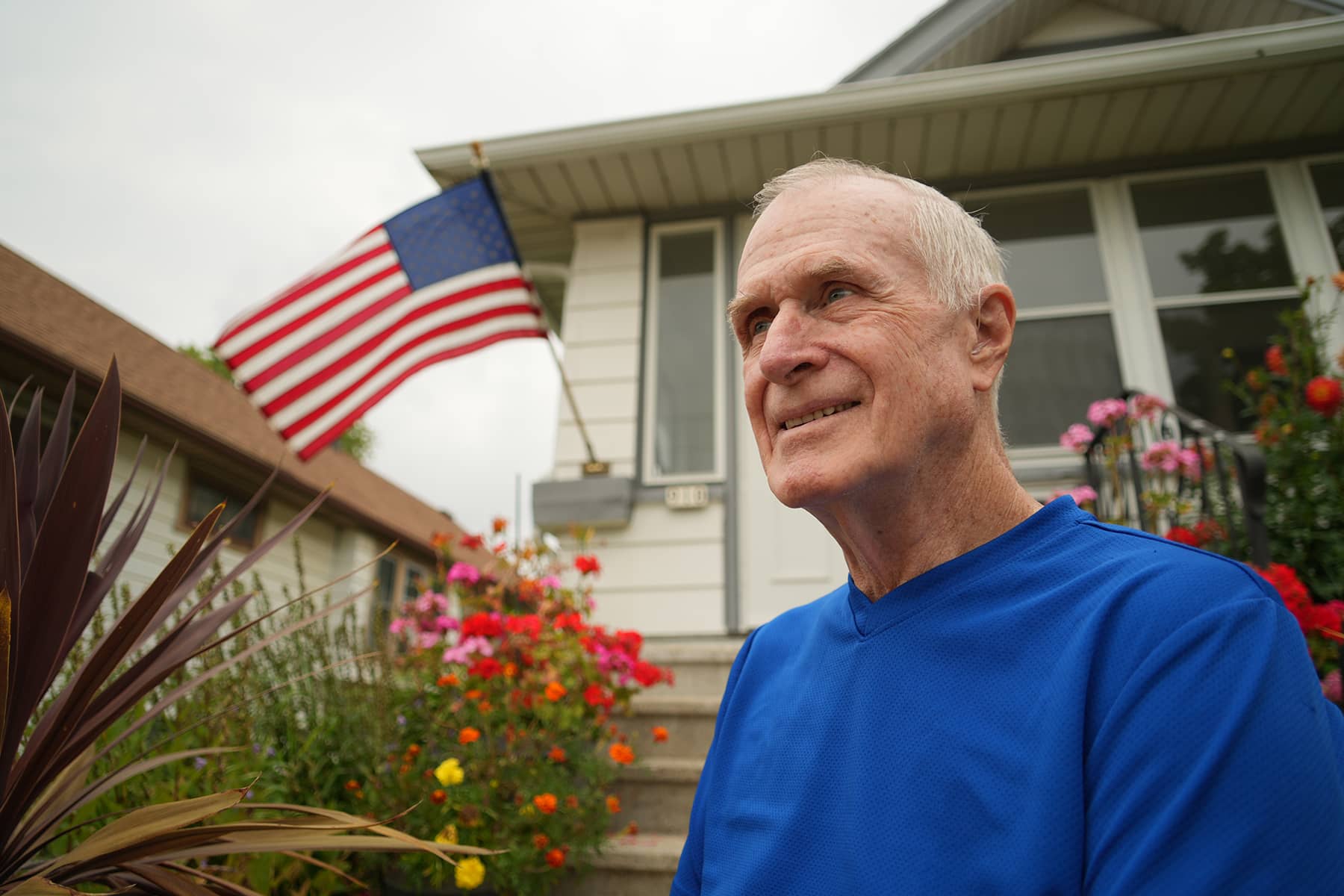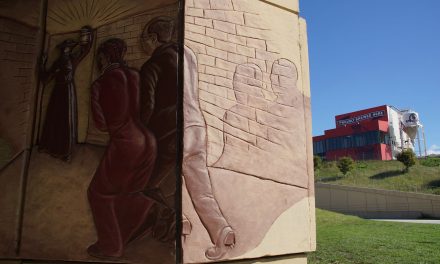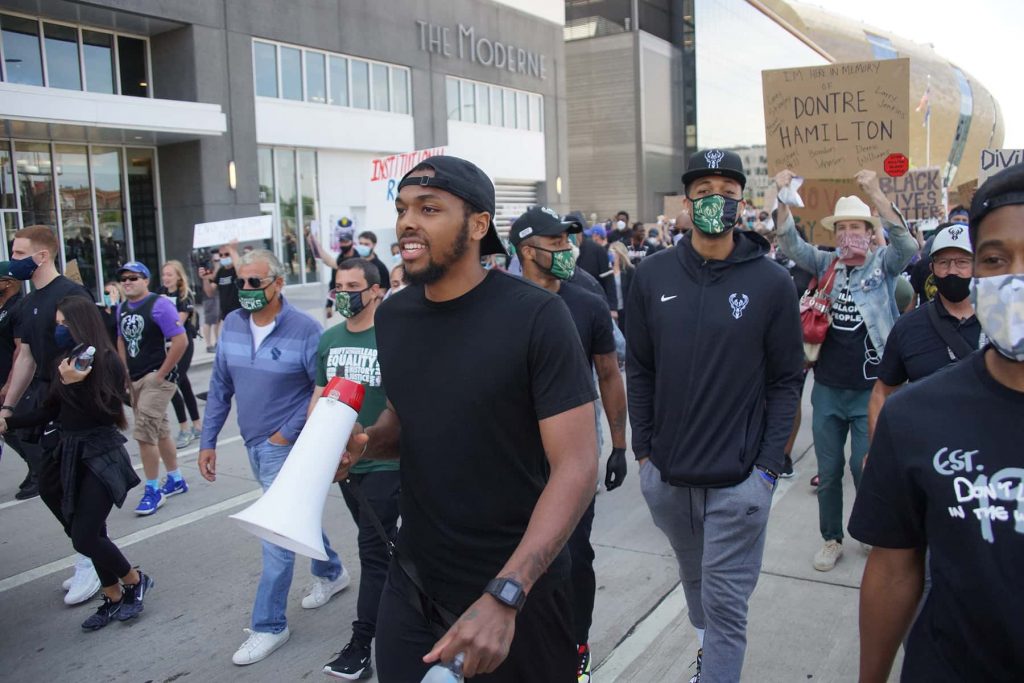
The military journey for Dan Odya began like many young men of his era. It was marked by the turbulence of the Vietnam War and a sense of duty that would carry him far from home. But unlike many of his peers, who found themselves in the jungles of Southeast Asia, Odya’s path led him to the tense, frozen hills of the Korean Demilitarized Zone (DMZ).
It was a place where the echoes of the Korean War still lingered into the 1970s and the threat of conflict remained a daily reality.
Odya said that he was both drafted and enlisted into the U.S. Army. He came home on his 21st birthday in 1969 to find a letter in the mail saying he had one week to report for duty.
“Even back then, one week doesn’t give you much time to wrap things up in your life. You have a lot of paperwork to clear away, and then prepare yourself mentally for what’s to come,” said Odya. “As it turned out, the following Monday I had a recruiter come to my front door. He said that I could beat the draft by enlisting. At that time, they had what was called a 120-day delay enlistment program.”
What it meant for Odya was that by enlisting at the end of March, he could spend the summer at home in Milwaukee before shipping off for basic training at the end of July. Plus, he was given four months of credit for the deferment time, which would help later with promotions.
“At the time I attended cooking school at MIT, now known as MATC. I lost my draft deferment, but it took a while for that to catch up with me,” said Odya. “My records at the draft office in Milwaukee had been burned in an anti-war protest the year before.”
On September 24, 1968, a group of 14 priests, nuns, and laypeople known as the Milwaukee 14, took action in protest against the Vietnam War. They entered the Milwaukee draft board, seized 10,000 draft files, and burned them using homemade napalm in a symbolic act of civil disobedience.
The draft, during the Vietnam War era, was a system of compulsory military service that required young men aged 18 to 26 to serve in the armed forces. The Selective Service System conducted random lotteries based on birth dates to determine the order in which men would be called to serve.
The draft was highly controversial, sparking widespread protests, particularly as the war became increasingly unpopular. Many young men sought deferments, such as for education, while others resisted or fled the country to avoid conscription.
“I went from basic training at Fort Campbell, Kentucky, to the quartermaster School at Fort Lee, Virginia, and then on to my first duty station at Fort Leonard Wood,” said Odya. “I was there from January 1970 through the end of July, and then was told I would ship out for deployment overseas in a month.”
Even though U.S. involvement in Vietnam began to decline by 1970, a significant number of enlisted soldiers were continuously deployed there. But instead of being sent to the war, Odya was ordered to South Korea. He never learned why.
While the Vietnam War dominated U.S. military planning, a strong military presence on the Korean Peninsula was still of strategic importance. Tensions between North and South Korea remained elevated after a series of high-profile but low-level clashes, and the U.S. needed to deter the potential of further aggression.
“I was assigned as a cook to an infantry unit stationed near the DMZ, but my duties extended beyond the kitchen,” said Odya. “I was also the assistant mess sergeant for the company, so I did all the paperwork and managed a little bit of everything else. The Army expected more from us, so even though I was there as a cook, I was still a soldier. I had a lot of other duties as well.”
After spending a few months in South Korea, Odya got to know other soldiers who had previously served in Vietnam. They had been transferred to the DMZ, but often expressed a longing for the familiarity of their previous conflict.
“They wished they could go back to Vietnam because they knew what was going on there. In Korea, it was harder to know what to expect,” said Odya. “There were infiltrators sneaking through the countryside, trying to get into South Korea. It kept everyone on edge.”
Between the release of the USS Pueblo crew in December 1968 and Odya’s arrival in 1970, the Korean DMZ remained a hotspot of tension. North Korean forces continued to infiltrate the DMZ, leading to frequent skirmishes with U.S. and South Korean troops.
Notable incidents included the Blue House Raid’s aftermath and the 1969 shootdown of a U.S. Navy EC-121 aircraft, which further escalated hostilities. Though it was technically a “ceasefire” zone, the reality on the ground at the DMZ was far from peaceful.
“It just seemed strange to me that here we were in a combat zone,” said Odya. “In Vietnam, you’d be carrying a rifle with you to protect yourself. But here, you had to walk around basically unarmed, unless you were on a specific duty like fence patrol or something similar.”
Odya often left his post to pick up supplies from the depot in a “deuce and a half,” the ubiquitous 2.5-ton capacity military cargo truck used by the U.S. Army at that time. Unlike Vietnam which had well-stocked field kitchens, Odya’s base had a regular kitchen and depended on their supply lines.
“We didn’t even have a coffee pot, and there was no instant coffee. So we made what we called ‘hobo coffee.’ Basically, we boiled water and tossed some grounds in it, then took it off the heat and let it sit. Kind of like letting tea steep. The coffee grounds would settle at the bottom, but we still strained it before drinking,” said Odya. “We had problems with maintaining enough sugar because it seemed like when the Koreans had their coffee, they put about a quarter of an inch of sugar on the bottom. They also added about three-quarters of milk, before they filled the rest with coffee.”
One of the biggest challenges Odya had was dealing with leftovers. While they were offered to the troops, the guys were often picky about what they would eat. Mainly they asked for more meat. But Odya had salads and other things to consider as well.
“So, I came up with the idea to have another guy work the night shift. He would start around eight in the evening and by midnight, he’d have prepared stews or hearty soups,” said Odya. “This way, we could provide a hot meal with coffee and hot chocolate for the guys coming in from the cold, especially those in foxholes during the winter, when temperatures dropped to freezing.”
Odya said the troops appreciated having a hot meal in the middle of the night, and it worked out well. They never had complaints, and it actually helped out in other ways. Odya had to keep a register showing who ate in the mess hall, which determined the rations they received.
“All of a sudden, our numbers started going up because more guys were eating. With the increased rations, I could go down to the supply depot and barter for extra items, like more coffee and hot chocolate,” said Odya.
Aside from his regular duties, Odya would once in a while be sent on missions into the DMZ. He would ride on the back of a jeep for what was called a “rat patrol.”
The term was taken from a popular 1960s television show, which featured a group of soldiers conducting hit-and-run missions in jeeps during World War II. However, in the context of the Korean DMZ, it referred to the dangerous and often tense work of monitoring the border with North Korea.
“I never came in contact with any of the North Koreans, but on one of the rat patrols we got into a scuffle. It was at night and our jeep broke down. There was no moon so it was really dark, and our road was little more than a dirt path through the woods,” said Odya. “So while one of the guys was fixing the jeep, we heard something nearby. Then a shot rang out and we shot back into the darkness. Nothing much came of that, and as soon as the jeep was working we got out of there. But that was the only encounter I ever had with the enemy.”
While the threat of conflict was ever-present, Odya also had the opportunity to immerse himself in the local culture. He recalled a particularly memorable weekend trip to Seoul, where he and a few other soldiers were hosted by university students eager to practice their English.
“It was both entertaining and educational. The students were about our same age, and they were eager to talk with us and understand the idioms we use, which they found quite strange,” said Odya. “It was also a great opportunity for us to experience the local culture firsthand. We visited open-air markets, where I observed how people shopped for their daily necessities. Since they didn’t have the same refrigeration we did, they bought their meats and vegetables fresh each day. The meat wasn’t like what we’re used to back home. There were no special cuts like New York strips or porterhouse steaks. Instead, they sold slabs or chunks of meat, which they’d cut up however they needed. It was a fascinating insight into daily life.”
Odya’s curiosity extended to Korean cuisine, which he embraced with an adventurous spirit. He would actually make it a point to avoid knowing what he was eating.
“I asked the locals not to tell me what the food was until after I had tasted it. That way, I could form my own opinion without any preconceived notions. So during my time in Korea, I had the opportunity to try a wide variety of dishes,” said Odya. “Years later, one of my son’s classmates, who was from Korea, came to the United States in 1993 to finish his schooling. When he saw my pictures and heard about the different foods I had tried, he was really surprised. He mentioned that some of the dishes I had eaten weren’t very popular. They were more regional specialties that not everyone in Korea would eat. But I told him I liked them, they tasted good to me.”
Odya was stationed at Camp Liberty Bell by the DMZ, and later further south at Camp Hovey in Uijeongbu, a city that served as a home for the fictional 4077th Mobile Army Surgical Hospital in the popular TV series M*A*S*H.
Just before Odya was stationed at the DMZ, the U.S. military had started spraying Agent Orange around 1968, and continued doing so until about a month after he left. The area was left completely barren. There was no vegetation growing, and it looked as devastated as it had from the war 20 years earlier.
When Odya began experiencing health issues, he suspected it was related to his military service. But the long delay of the government’s acknowledgment unnecessarily inhibited his treatment.
“What’s really frustrating is that they didn’t officially acknowledge using Agent Orange in the DMZ until 2014,” said Odya. “They claimed that we should have reported any exposure within a year of leaving, but how could we have done that when we didn’t even know we had been exposed? It took them 40 years to admit it, and a lot of us never lived long enough to learn about what we had been exposed to.”
Exposure to Agent Orange left Odya with peripheral neuropathy, a condition that causes numbness and pain in the extremities. There were parts of his feet with no feeling. Some doctors attributed it to nerve damage from an injury. Other doctors said it was due to diabetes.
“I’ve got a lot of dead spots in my feet. Some doctors say it’s because of the nerve damage when my back was injured, but others say it’s also because of Agent Orange,” said Odya. “Normally, if you have neuropathy in your feet, it’s because you’re diabetic. I’m not diabetic, and the condition has been linked to Agent Orange. So the VA is still going back and forth on this.”
Even though he had not served in Vietnam, Odya’s homecoming to America in 1971 was met with the same hostility as other returning soldiers.
“The Army told us, ‘Just put your uniform away and don’t say anything. Don’t talk about being in the service.’ Whatever it was we’re asked, just deny it and never admit that we were in the military,” said Odya.
After his discharge overseas, Odya landed at Fort Lewis, Washington. He had to transfer to Seattle’s SeaTac Airport for a flight back to Milwaukee. Odya remembered a disheartening experience while waiting for his plane. It was with members of The Unification Church, a religious movement founded in South Korea in 1954 by Reverend Sun Myung Moon.
“So I’m on a layover and just waiting. And this group of ‘Moonies’ is roaming around the airport, handing out their materials. They were all about spreading love, except if you were in the military. Then they gave you a hard time. They called us baby killers, and some even spit on us. I wasn’t directly involved in any combat, but that didn’t matter to them,” said Odya. “The same thing happened to me while I was waiting in Chicago, because I couldn’t get a direct flight to Milwaukee. I had to wait there for my parents to pick me up. That was the negative part of coming back home.”
Odya described his integration back into civilian life as being a disorienting experience. He felt numb and did not fully grasp how much he had changed during his time overseas. Or the country in his absence.
“I was engaged to be married when I went off to Korea, but when I came back it didn’t last,” said Odya. “About two or three months after I returned from overseas, I was home on leave. My fiance was like, ‘Happy New Year, here’s your ring back.’”
Decades later, Odya was invited to participate in a Stars and Stripes Honor Flight, a program that takes veterans to Washington DC to visit the memorials dedicated to their service. For Odya, the experience was deeply emotional, as it came during a particularly difficult time in his life.
“I was on such an emotional roller coaster that year. My brother passed away in August, and then a close friend from church passed away a week before I took my Honor Flight,” said Odya. “Then, the day before the flight, we had my brother’s memorial service. So I was sitting there, all over the place emotionally. It was a day filled with mixed feelings, but I’m grateful I could share it with my daughter, who was my companion on the trip.”
Since then, Odya has continued to give back that gratitude as part of the Veteran Ambassador Team for Honor Flight. They spend time with the families of the veterans currently on the flight, sharing what to expect and providing support. One of the most moving moments of the experience is the silent salute. When the veterans return to Milwaukee Mitchell International Airport, they walk down a pathway lined with people on both sides, saluting them as they pass.
“The emotion you feel during the trip is powerful, but this moment is truly overwhelming. I remember once when I was waiting by the gate with some friends as the plane landed. As I walked down the line to get into position for the salute, the memories of my own experience came flooding back,” said Odya. “It was so intense that I couldn’t walk through the line, I had to walk behind it instead. It’s that powerful, and you can see some of the guys start to break down as they walk through.”
Today, Odya looks back on his time in Korea with a mixture of nostalgia and concern. The South Korea he knew has changed dramatically since the 1970s, transformed from a war-torn country into a global economic powerhouse. But the shadow of North Korea still looms large.
“I feel sorry for the South Koreans having to deal with the erratic leadership north of the 38th Parallel in Pyongyang,” said Odya. “Even when I was stationed there, I thought the leader at the time was unstable, with all the saber-rattling that was going on.”
Over the years, Odya continued to follow the situation with North Korea. It was unsettling for him to see that Kim Jong Un was even more unpredictable than his father or grandfather.
“I also feel for the North Koreans because their leadership keeps them so isolated and misinformed. They have no idea what’s happening in the rest of the world. If you look at a Google map of the world at night, North Korea is pitch black. Every other country around it has cities lit up with life. The people there only hear what their government tells them, which is a tragic situation,” Odya added.
- Exploring Korea: Stories from Milwaukee to the DMZ and across a divided peninsula
- A pawn of history: How the Great Power struggle to control Korea set the stage for its civil war
- Names for Korea: The evolution of English words used for its identity from Gojoseon to Daehan Minguk
- SeonJoo So Oh: Living her dream of creating a "folded paper" bridge between Milwaukee and Korean culture
- A Cultural Bridge: Why Milwaukee needs to invest in a Museum that celebrates Korean art and history
- Korean diplomat joins Milwaukee's Korean American community in celebration of 79th Liberation Day
- John T. Chisholm: Standing guard along the volatile Korean DMZ at the end of the Cold War
- Most Dangerous Game: The golf course where U.S. soldiers play surrounded by North Korean snipers
- Triumph and Tragedy: How the 1988 Seoul Olympics became a battleground for Cold War politics
- Dan Odya: The challenges of serving at the Korean Demilitarized Zone during the Vietnam War
- The Korean Demilitarized Zone: A border between peace and war that also cuts across hearts and history
- The Korean DMZ Conflict: A forgotten "Second Chapter" of America's "Forgotten War"
- Dick Cavalco: A life shaped by service but also silence for 65 years about the Korean War
- Overshadowed by conflict: Why the Korean War still struggles for recognition and remembrance
- Wisconsin's Korean War Memorial stands as a timeless tribute to a generation of "forgotten" veterans
- Glenn Dohrmann: The extraordinary journey from an orphaned farm boy to a highly decorated hero
- The fight for Hill 266: Glenn Dohrmann recalls one of the Korean War's most fierce battles
- Frozen in time: Rare photos from a side of the Korean War that most families in Milwaukee never saw
- Jessica Boling: The emotional journey from an American adoption to reclaiming her Korean identity
- A deportation story: When South Korea was forced to confront its adoption industry's history of abuse
- South Korea faces severe population decline amid growing burdens on marriage and parenthood
- Emma Daisy Gertel: Why finding comfort with the "in-between space" as a Korean adoptee is a superpower
- The Soul of Seoul: A photographic look at the dynamic streets and urban layers of a megacity
- The Creation of Hangul: A linguistic masterpiece designed by King Sejong to increase Korean literacy
- Rick Wood: Veteran Milwaukee photojournalist reflects on his rare trip to reclusive North Korea
- Dynastic Rule: Personality cult of Kim Jong Un expands as North Koreans wear his pins to show total loyalty
- South Korea formalizes nuclear deterrent strategy with U.S. as North Korea aims to boost atomic arsenal
- Tea with Jin: A rare conversation with a North Korean defector living a happier life in Seoul
- Journalism and Statecraft: Why it is complicated for foreign press to interview a North Korean defector
- Inside North Korea’s Isolation: A decade of images show rare views of life around Pyongyang
- Karyn Althoff Roelke: How Honor Flights remind Korean War veterans that they are not forgotten
- Letters from North Korea: How Milwaukee County Historical Society preserves stories from war veterans
- A Cold War Secret: Graves discovered of Russian pilots who flew MiG jets for North Korea during Korean War
- Heechang Kang: How a Korean American pastor balances tradition and integration at church
- Faith and Heritage: A Pew Research Center's perspective on Korean American Christians in Milwaukee
- Landmark legal verdict by South Korea's top court opens the door to some rights for same-sex couples
- Kenny Yoo: How the adversities of dyslexia and the war in Afghanistan fueled his success as a photojournalist
- Walking between two worlds: The complex dynamics of code-switching among Korean Americans
- A look back at Kamala Harris in South Korea as U.S. looks ahead to more provocations by North Korea
- Jason S. Yi: Feeling at peace with the duality of being both an American and a Korean in Milwaukee
- The Zainichi experience: Second season of “Pachinko” examines the hardships of ethnic Koreans in Japan
- Shadows of History: South Korea's lingering struggle for justice over "Comfort Women"
- Christopher Michael Doll: An unexpected life in South Korea and its cross-cultural intersections
- Korea in 1895: How UW-Milwaukee's AGSL protects the historic treasures of Kim Jeong-ho and George C. Foulk
- "Ink. Brush. Paper." Exhibit: Korean Sumukhwa art highlights women’s empowerment in Milwaukee
- Christopher Wing: The cultural bonds between Milwaukee and Changwon built by brewing beer
- Halloween Crowd Crush: A solemn remembrance of the Itaewon tragedy after two years of mourning
- Forgotten Victims: How panic and paranoia led to a massacre of refugees at the No Gun Ri Bridge
- Kyoung Ae Cho: How embracing Korean heritage and uniting cultures started with her own name
- Complexities of Identity: When being from North Korea does not mean being North Korean
- A fragile peace: Tensions simmer at DMZ as North Korean soldiers cross into the South multiple times
- Byung-Il Choi: A lifelong dedication to medicine began with the kindness of U.S. soldiers to a child of war
- Restoring Harmony: South Korea's long search to reclaim its identity from Japanese occupation
- Sado gold mine gains UNESCO status after Tokyo pledges to exhibit WWII trauma of Korean laborers
- The Heartbeat of K-Pop: How Tina Melk's passion for Korean music inspired a utopia for others to share
- K-pop Revolution: The Korean cultural phenomenon that captivated a growing audience in Milwaukee
- Artifacts from BTS and LE SSERAFIM featured at Grammy Museum exhibit put K-pop fashion in the spotlight
- Hyunjoo Han: The unconventional path from a Korean village to Milwaukee’s multicultural landscape
- The Battle of Restraint: How nuclear weapons almost redefined warfare on the Korean peninsula
- Rejection of peace: Why North Korea's increasing hostility to the South was inevitable
- WonWoo Chung: Navigating life, faith, and identity between cultures in Milwaukee and Seoul
- Korean Landmarks: A visual tour of heritage sites from the Silla and Joseon Dynasties
- South Korea’s Digital Nomad Visa offers a global gateway for Milwaukee’s young professionals
- Forgotten Gando: Why the autonomous Korean territory within China remains a footnote in history
- A game of maps: How China prepared to steal Korean history to prevent reunification
- From Taiwan to Korea: When Mao Zedong shifted China’s priority amid Soviet and American pressures
- Hoyoon Min: Putting his future on hold in Milwaukee to serve in his homeland's military
- A long journey home: Robert P. Raess laid to rest in Wisconsin after being MIA in Korean War for 70 years
- Existential threats: A cost of living in Seoul comes with being in range of North Korea's artillery
- Jinseon Kim: A Seoulite's creative adventure recording the city’s legacy and allure through art
- A subway journey: Exploring Euljiro in illustrations and by foot on Line 2 with artist Jinseon Kim
- Seoul Searching: Revisiting the first film to explore the experiences of Korean adoptees and diaspora







































































